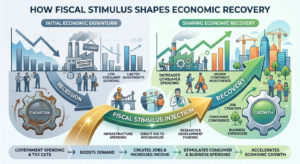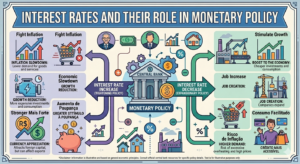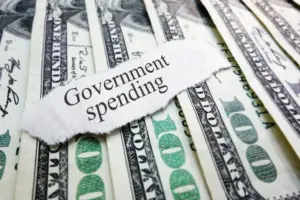In the tapestry of modern financial life, credit and loans are ubiquitous threads. From the mortgage that allows us to own a home to the credit card that offers convenience and a safety net, borrowing plays an integral role in the finances of most individuals and households in the UK. When managed wisely, credit can be a powerful tool for achieving life goals, handling emergencies, and building a strong financial reputation. However, when misused or misunderstood, it can quickly become a heavy burden, leading to debt spirals and significant stress. This detailed guide aims to demystify credit and loans in the UK, offering a comprehensive overview of how they work, the various forms they take, and, crucially, actionable strategies for effective management to ensure your financial well-being.
Understanding the Landscape: Types of Credit and Loans in the UK
Before diving into management, it’s vital to recognise the different forms of credit available and their typical uses:
1. Credit Cards: Perhaps the most common form of revolving credit. Credit cards offer a pre-approved spending limit, allowing you to borrow money up to that limit, repay it, and then borrow again.
- Pros: Convenience, fraud protection, interest-free periods (if repaid in full monthly), building credit history, rewards programmes.
- Cons: High interest rates if balances aren’t repaid, potential for impulse spending, minimum payments can hide growing debt.
2. Personal Loans: Often used for specific purchases like a car, home improvements, or consolidating other debts. These are typically repaid in fixed monthly instalments over a set period.
- Pros: Fixed repayment schedule, predictable monthly costs, often lower interest rates than credit cards, suitable for larger, planned expenses.
- Cons: Can be difficult to get approval without a good credit history, early repayment charges may apply.
3. Mortgages: The largest form of secured borrowing, used to purchase property. Mortgages are secured against the property itself, meaning the lender can repossess the home if repayments are not met.
- Pros: Enables homeownership, usually the lowest interest rates due to being secured, often long repayment terms.
- Cons: Very large sums involved, long-term commitment, interest rate fluctuations (for variable rate mortgages) can impact affordability, property market changes.
4. Overdrafts: An agreement with your bank to allow you to spend more money than you have in your current account, up to an agreed limit.
- Pros: Flexible access to emergency funds, convenient.
- Cons: Often very high interest rates or daily fees, easy to fall into without careful monitoring.
5. Car Finance (e.g., PCP, HP): Specific loan agreements to fund vehicle purchases.
- PCP (Personal Contract Purchase): Lower monthly payments, but you don’t own the car until a final “balloon payment” is made.
- HP (Hire Purchase): You own the car after all payments are made.
- Pros: Makes car ownership more accessible.
- Cons: Complex agreements, long-term commitments, potential for negative equity, interest adds significant cost to the vehicle.
6. Payday Loans: Short-term, high-cost loans designed to be repaid on your next payday.
- Pros: Fast access to funds.
- Cons: Extremely high interest rates (often annual percentage rates – APRs – in the hundreds or even thousands), can lead to a debt spiral if not repaid on time. Generally to be avoided.
The Bedrock of Borrowing: Your Credit Score and Report
Central to accessing credit and loans in the UK is your credit score and credit report. These are essentially your financial CV, detailing your borrowing and repayment history. Lenders use them to assess your creditworthiness.
- Credit Report: A detailed record of your past borrowing, including credit accounts, payment history, insolvencies, and even address history.
- Credit Score: A numerical representation derived from your report, indicating your perceived risk to lenders. A higher score means you’re seen as less risky and are more likely to be approved for credit at better rates.
You can check your credit report for free with agencies like Experian, Equifax, and TransUnion. Regularly checking your report allows you to:
- Spot errors that could negatively impact your score.
- Understand factors affecting your score.
- Identify potential fraud.
Tips for Building a Strong Credit Score:
- Pay Bills on Time: This is the most crucial factor. Missing payments significantly damages your score.
- Keep Credit Utilisation Low: Try to use less than 30% of your available credit on credit cards.
- Limit Applications: Avoid applying for multiple forms of credit in a short period.
- Register on the Electoral Roll: This verifies your address.
- Close Unused Accounts Carefully: While closing old accounts might seem sensible, it can sometimes reduce your available credit and shorten your credit history. Seek advice if unsure.
- Build a Long Credit History: The longer you’ve successfully managed credit, the better.
Strategic Management: How to Control Your Finances
Effective management of credit and loans is paramount to financial health. Here are key strategies:
1. Budget, Budget, Budget: This is the fundamental starting point. Understand exactly how much income you have and where every penny goes. This allows you to identify surplus funds for debt repayment or areas where spending can be cut. Use budgeting apps, spreadsheets, or even pen and paper.
2. Prioritise High-Interest Debt: Not all debt is equal. High-interest credit (like credit cards or payday loans) should be your primary focus. The “debt avalanche” method (paying off the highest interest debt first) saves you the most money in the long run. The “debt snowball” method (paying off the smallest debt first) can provide psychological wins.
3. Pay More Than the Minimum: For credit cards and revolving credit, always aim to pay more than the minimum monthly payment. Paying only the minimum can mean paying interest for years, drastically increasing the total cost of your borrowing.
4. Consolidate Debt (Wisely): If you have multiple high-interest debts, a debt consolidation loan (a single loan with a lower interest rate) can simplify payments and reduce overall interest. However, ensure you don’t extend the repayment term unnecessarily or incur new debt once consolidated.
5. Avoid New Unnecessary Debt: While tackling existing debt, resist the urge to take on new, non-essential borrowing. Every new loan adds to your financial burden.
6. Build an Emergency Fund: Having 3-6 months’ worth of essential living expenses saved in an easily accessible account (like a cash ISA) is a crucial buffer. This prevents you from resorting to high-interest credit during unexpected crises (e.g., job loss, medical emergency).
7. Understand the True Cost of Borrowing: Always look at the Annual Percentage Rate (APR), which includes interest and other charges, to compare the true cost of different credit products. Be wary of hidden fees.
8. Automate Payments: Set up direct debits for all your loan and credit card repayments to avoid missing deadlines and incurring late fees or damaging your credit score.
9. Review and Refinance (Mortgages): Regularly review your mortgage deal. When your fixed-rate term ends, or if interest rates fall, consider remortgaging to a better deal to reduce your monthly payments or total interest paid.
10. Seek Professional Debt Advice: If you feel overwhelmed by debt, do not suffer in silence. Free and impartial debt advice is available from reputable organisations in the UK like:
- StepChange Debt Charity: Offers free, confidential debt advice and debt management plans.
- National Debtline: Provides free debt advice by phone and online.
- Citizens Advice: Offers local advice on a wide range of issues, including debt.
These organisations can help you understand your options, negotiate with creditors, and explore formal debt solutions like Individual Voluntary Arrangements (IVAs) or Debt Relief Orders (DROs) if appropriate.
Conclusion: Empowerment Through Prudent Management
Credit and loans, when approached with knowledge and discipline, are valuable tools in the UK’s financial landscape. They can facilitate major life purchases and provide essential flexibility. However, the line between beneficial use and detrimental over-reliance is fine. By understanding how credit works, actively managing your credit score, budgeting meticulously, prioritising high-interest debt, and not hesitating to seek professional help when needed, you can transform these financial instruments from potential burdens into powerful levers for achieving your financial goals and maintaining a healthy, secure financial future. The power to manage your finances effectively lies firmly in your hands.







